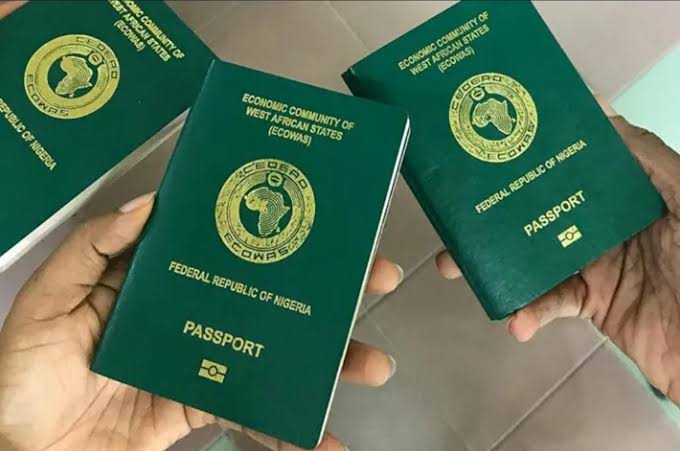News
EXPLAINER: Why letter of origin is compulsory as requirement for passport applications

The Nigeria Immigration Service (NIS), on Friday, clarified the need for letters of origin from applicants seeking passports.
This requirement, which has caused some confusion, aims to strengthen verification procedures and combat identity theft.
This was contained in a tweet in response to a query from a user about the requirements.
It reads in part, “It is quite important, especially based on certain intel that we have (but cannot disclose publicly), that ANYONE, a Nigerian of course, who wishes to obtain a Nigerian passport – a document of authority for identification and travel – MUST prove beyond reasonable doubt, that he/she is a Nigerian citizen.
“For your claim of being a Nigerian citizen to hold water, there has to be a document that “ties” you to a local government (indigenous area) within the country.
“This document is what we request that applicants present to us, amongst others, to authenticate their claim of being a citizen.”
According to the NIS, letters of origin serve as an additional layer of verification for an applicant’s place of birth and state of origin. These letters, typically issued by a local government authority or traditional ruler, can help confirm the applicant’s identity and lineage.
READ ALSO:Nigerian govt gives two-week timeline for issuance of passports
Why are letters of origin important?
• Combating Identity Theft: In an era of rising identity theft concerns, the NIS seeks to ensure applicants are who they claim to be. Letters of origin, coupled with other documentation, provide a more comprehensive picture of the applicant’s background.
• Verifying State of Origin: This requirement can be particularly relevant for individuals with names shared by people from different regions. Letters of origin can help clarify the applicant’s specific state of origin, which is a crucial detail for passport issuance.
Addressing Concerns
The NIS acknowledges that obtaining letters of origin might pose challenges for some applicants, particularly those residing outside their home states. The service is exploring ways to streamline the process and make it more accessible. This could involve collaboration with local authorities to facilitate easier issuance of letters.
What you need to know
• While not always required, letters of origin can be crucial depending on individual circumstances.
• Applicants are advised to contact their nearest NIS office for specific guidance on whether they need a letter of origin.
• The NIS is committed to streamlining the application process while ensuring robust security measures.
Thank you very much for this “question”.
First off, you DO NOT necessarily NEED to go to your state of origin to get the “indigenship document”.
We are aware that most states have liaison offices in other states. For example, Anambra state has liaison offices in Lagos (Eti-Osa)… https://t.co/EtjiYHOdHq
— Nigeria Immigration Service (@nigimmigration) April 19, 2024
Join the conversation
Support Ripples Nigeria, hold up solutions journalism
Balanced, fearless journalism driven by data comes at huge financial costs.
As a media platform, we hold leadership accountable and will not trade the right to press freedom and free speech for a piece of cake.
If you like what we do, and are ready to uphold solutions journalism, kindly donate to the Ripples Nigeria cause.
Your support would help to ensure that citizens and institutions continue to have free access to credible and reliable information for societal development.


















